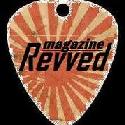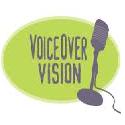
(click on picture to open file)
Interview By: Robert “Chucklehead” England
Written & Edited By: Michael D. Vogel
© March 15, 1997. Michael D. Vogel. All Rights Reserved.
Published in:
Chucklehead Strikes Back – April 1, 1997
– a special supplement of The Album Network magazine
The 60s revolution was a failure. If it had succeeded, we’d be buying pre-rolled packs of “smokes” at the corner liquor store and consenting adults would give “free love” a whole new meaning. Spectacular failures, however, tend to have interesting and lasting implications. As a result, the 60s gave birth to civil rights, moral irresponsibility and Lenny Bruce.
With the new millennium just on the horizon, the 90s have seen a resurgence of provocative influences. Madonna’s Erotica album and Sex book made sadomasochism vogue, while RuPaul and The Crying Game helped propel cross-dressing into a worldwide rage. But influence is measurable only by a person’s subjective perceptions.
Robert Schimmel possesses the irreverent and uncensored style of his predecessor, the often outspoken and highly controversial Lenny Bruce. With a style that wraps the plain truth into a punch line, Schimmel helps push the envelope of socially acceptable humor as it relates to modern sexual attitudes.
People want to spice up their lives or feel as if they’re at least part of some progressive cultural movement. Is there a chance that America will buck this trend and return to a period of old-fashioned, traditional values? Will bedroom activities be confined to “behind closed doors” policies? Will normal bodily functions remain only a source of embarrassment? Not if Robert Schimmel has any say about it!
Robert “Chucklehead” England recently chatted with Schimmel by telephone.
How did you get your start as a comedian?
Robert Schimmel: “I have always enjoyed making people laugh. When I was younger, I would spend hours watching the comedians on television. But as a profession, comedy was never something I saw as a viable option. Then, several years back, I came out to visit my sister in Los Angeles. She suggested we go to a local comedy club that was having amateur night. Without warning, the emcee called out my name to come up onstage a give a two-minute improvisational comedy bit. After much prodding from my sister I took the stage. That’s all it took, I was bitten by the comedy bug from that point on.
“Shortly thereafter, my wife and I packed up and moved from Scottsdale to Los Angeles. The first place I took her was to the club that gave me the two-minute set, but unfortunately, it had burned down the night before. Since I was in a new city, and no immediate source of income, I had to find a job. So, I started selling stereo equipment in Beverly Hills. Isn’t there a joke about comedians who start out as stereo salesmen? So, my beginning, by all accounts, was quite auspicious at best.”
What was your childhood like?
RS: “I was definitely a problem for my teachers and ultimately spent a great deal of time in detention while I was growing up. To me, it all came down to being able to make people laugh, even at my own expense.”
How did you get involved with radio?
“Shortly after my CD was released, sales started exploding in Grand Rapids. After a little research, it was discovered that a local radio station, WGRD, was playing bits from my album in a somewhat Heavy category. They asked me to participate in their annual benefit Christmas party. That was an exciting event for me because it allowed me to connect with the people who were buying the album. My other interactions with radio include the Bob & Tom morning show in Minneapolis and the Mark & Brian program from Las Vegas, prior to the Holyfield-Tyson title fight. If you want my honest opinion, I just love radio!
Do you censor the material you perform on radio?
“People are always telling me that I can’t do any of my stuff on the radio. They are always afraid that I will say something I shouldn’t. I make a conscious effort not to repeat any of my stand-up, nor say anything offensive or objectionable while on the air. There is a major difference between a nightclub and the radio. For example, when I was much younger, I remember watching Buddy Hackett on The Tonight Show. After the commercial break, Carson and the entire audience would be laughing hysterically. Because you weren’t there, you never knew what he said to make everyone laugh so hard that he couldn’t say during the show itself. As a result, people would then go to the live shows to hear the stuff they couldn’t see for free. Radio is an unbelievable opportunity in which hundreds of thousands of people listen to you-why would you want that opportunity to be censored?”
What was your experience like at the Gavin Convention?
“The whole experience was pretty unbelievable. I was the warm-up for a panel talking about some aspect of the music business. Of the nearly 350 people packing the room to see my 20-minute set, only 50 remained to hear the panel. Overall, I’m getting requests to do a lot of morning radio now–and it’s all because of my set at the Gavin.”
Have you ever been heckled?
“I’ve been heckled a few times in my career. When you talk about some of the topics, like sex, as intimately as I do, people are going to be somewhat intimidated. This is not because I pick on people or because of my physical persona, because I am a very vulnerable person onstage. I think, for the most part, people are afraid to say anything to me for fear of what I might say back to them.
“I remember one time specifically, where a woman started heckling me during my set–claiming my material just wasn’t funny. I responded with a quick line about taking her panties to Fotomat to have the film developed and she panicked. I don’t think anyone had said anything like that to her before. As a result, she sat in complete silence for the duration of the show.”
Are you currently working on anything for television?
“I’m currently punching up a script with a few jokes for a movie with Martin Landau. We should probably begin shooting in a few weeks. It is somewhat of a spoof in the vein of Spinal Tap, except instead of the music business; this movie deals with the ups and downs of the comedy business. Some people will do almost anything to get ahead while others simply refuse to compromise themselves even at the sacrifice of the advancement of their career. I play a comic that is experiencing some hard times due to the content of the material performed. Martin Landau plays my agent who is also a little down on his luck. My character is his last chance at regaining some of that stardom he was once so accustomed to. It is really a very funny script and I am very excited to be a part of it.”
How long does it take to write a comedy routine?
“It all really depends on what is going on at the time. For the most part though, I try to write on the spur of the moment. In the course of a conversation, a particular subject might get a humorous response or something might be said that will stir other thoughts in my head. For example, the saying ‘There’s more pussy than you can shake a stick at.’ What does that really mean? How much pussy can you shake a stick at–is there a cut-off, or a certain predetermined amount (that I wasn’t informed about)?
“Another similar story revolves around a recent trip to a sushi bar. A friend suggested that I try sea urchin–with a guarantee that my balls would grow if I did. If this was true, would the rest of my personal anatomy shrink as my testicles grew? You would eventually need a wheelbarrow to carry your elephantiasis-afflicted testicles around. Now that would be a tough day! Besides, even under those conditions, would there still be room for Jell-O? These are the types of crazy tangents I think about when something I read or hear strikes me as funny.”
Do have a particular favorite bit?
While onstage, I really enjoy watching the reactions of the people in the audience to certain things that I say. Especially if the topic revolves around something on a personal level. I sometimes want to break out laughing because some people take the jokes so seriously, as if I was talking specifically about them and their private lives. Specifically, women come up to me after the show stating that I admit things that no man ever admits to a woman. It’s as if I am going to confession for the entire audience and through laughter the audience becomes absolved.”
What was it like making a comedy record?
“Making the record was pretty easy. The thing that scares me, though, is if the record doesn’t make it. Musicians can write and record a song in a day’s time; unfortunately, things don’t work that way for a comedy album. Comedians don’t have singles like musicians do. The current album represents the best of the material that I have to date.
“Besides, let’s face it–how many people really go specifically to Tower Records and browse through the comedy section? People just don’t actively look at what the new comedy releases are. If the comedian is fresh in their mind, they might purchase the album, but three days later, probably not.
“It is for these reasons that I really have to tip my hat to comedians like Richard Pryor, Steve Martin and Lenny Bruce, to name a few. George Carlin just released his 17th album. There are several comedians that have only one album and then never get a second chance. These comics had multiple albums–that’s how prolific these guys really are!
“There is an old joke that applies here. How do you get a musician off the doorstep? Pay for the pizza! The point being that everyone has to do something else while waiting for their dreams to come true.
“That’s why the people in Los Angeles are so funny. Nobody really seems to be who they are. I went to get gas across from CBS Studios the other day. While I was waiting, the attendant told me that he was really a screenwriter and awaiting a call from Paramount. What I wanted to tell him was, while he was waiting, would he mind checking the oil and cleaning the windows?” ^m^
Origin:
A Bronx native, Schimmel is now living in Los Angeles via Scottsdale, Arizona.
About The Current CD:
Comes Clean is Raunchy stand-up comedian Robert Schimmel’s debut album. The former writer for In Living Color and for comedians such as Yakov Smirnoff ranks at number 76 on Comedy Central’s list of the 100 Greatest Stand-ups of All Time.
Discography:
Comes Clean (Warner Bros., 1996)
Produced By:
William E. McEuen
Label:
Warner Bros.
Website:
© March 15, 1997. Michael D. Vogel. All Rights Reserved. This originally appeared on the Vogelism blog at https://www.vogelism.com authored by Michael D. Vogel. This article may be shared or reprinted as long as the entire copyright message, including the source location of this article, accompanies it.














 Welcome to Michael D. Vogel’s online portfolio. I am a Los Angeles-based music journalist/content creator, and self-professed music-fanatic/radio-aholic. With more than 20 years of experience in multiple facets of the music industry including; music programming/air talent for terrestrial and internet radio as well as record label artist promotion, I have a finger on the pulse of what's new and under the radar in the emerging music scene. Areas of specific expertise include, but not limited to: rock (heritage, mainstream, heavy metal/hard rock and alternative), pop and adult contemporary, as well as radio, pop culture, sports, exercise and politics. I am applying my passion for music as a freelance writer for the Examiner as National Music Examiner (Examiner.com) in addition to West Coast Editor for FreeGotham (FreeGotham.com). Find me at michael@vogelism.com.
Welcome to Michael D. Vogel’s online portfolio. I am a Los Angeles-based music journalist/content creator, and self-professed music-fanatic/radio-aholic. With more than 20 years of experience in multiple facets of the music industry including; music programming/air talent for terrestrial and internet radio as well as record label artist promotion, I have a finger on the pulse of what's new and under the radar in the emerging music scene. Areas of specific expertise include, but not limited to: rock (heritage, mainstream, heavy metal/hard rock and alternative), pop and adult contemporary, as well as radio, pop culture, sports, exercise and politics. I am applying my passion for music as a freelance writer for the Examiner as National Music Examiner (Examiner.com) in addition to West Coast Editor for FreeGotham (FreeGotham.com). Find me at michael@vogelism.com. 